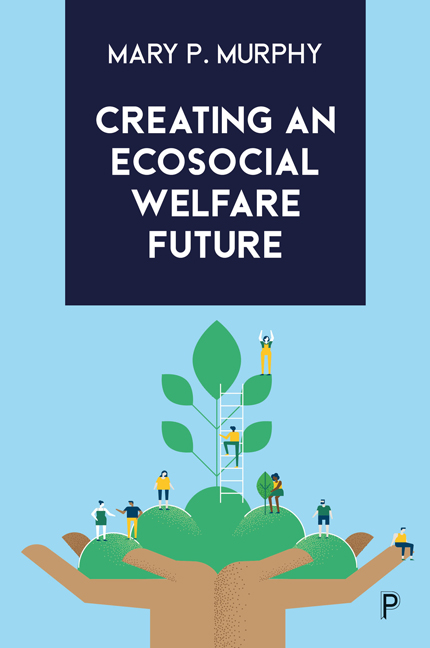Book contents
- Frontmatter
- Dedication
- Contents
- List of figures and tables
- Acknowledgements
- Introduction: The case for a welfare imagination
- PART I From problems to solutions: a post-growth ecosocial political economy
- PART II Building an ecosocial imaginary
- PART III An ecosocial political imaginary
- Conclusion: The case for systemic transformation
- Appendix: Ireland
- Notes
- References
- Index
Introduction: The case for a welfare imagination
Published online by Cambridge University Press: 20 January 2024
- Frontmatter
- Dedication
- Contents
- List of figures and tables
- Acknowledgements
- Introduction: The case for a welfare imagination
- PART I From problems to solutions: a post-growth ecosocial political economy
- PART II Building an ecosocial imaginary
- PART III An ecosocial political imaginary
- Conclusion: The case for systemic transformation
- Appendix: Ireland
- Notes
- References
- Index
Summary
This book contributes to the growing number of arguments for a new ecosocial form of welfare and examines the politics of making ecosocial welfare a reality. The problem the book addresses is structural and the solution is ultimately political. My aim is to bring together accessible arguments about the need to recast the welfare state to meet the challenges of achieving sustainability and equality, and to address the politics of making that happen. A key theme is the integration of ecological and social arguments in identifying the problems and solutions, and the political strategies to make change happen. While intentionally light in its presentation of theory, an eclectic range of theory informs and develops the work. It draws on key concepts including globalisation, sustainability, institutions, services, income, imaginaries, transformation and power. These concepts and ideas are brought together to map a welfare reform project, grounded in the transformational potential of social policy, and applied in the context of specific reform proposals across institutions, services and income supports.
An ecosocial solution to climate change and inequality forms part of global agenda that unites poor and rich countries in a new economic and social settlement, the financial responsibility for which must be borne by the Global North (Gough, 2017). Future welfare policy must develop in this international context but will more often be implemented nationally. The more detailed discussions in Chapters 4, 5 and 6 apply predominantly to developed nations’ welfare state reform. The same principles, but not the same policies, may be relevant for the Global South, while global redistribution of resources is essential. The author acknowledges the Global North bias of this book, which results in a relative absence of focus on issues more relevant to the Global South including debt and reparation. The need for different strategies for different regions, and the role of global and regional institutions including the EU, are beyond the scope of this book. This short introductory chapter first outlines the problems, solutions and strategies that inform the underlying argument for ecosocial policy. It then justifies the case for imagination and hope, my motivation for authoring the book and the choice of Ireland as an anchoring case study. Finally, the chapter outlines the structure of the book and the content of each chapter.
- Type
- Chapter
- Information
- Creating an Ecosocial Welfare Future , pp. 1 - 10Publisher: Bristol University PressPrint publication year: 2023



